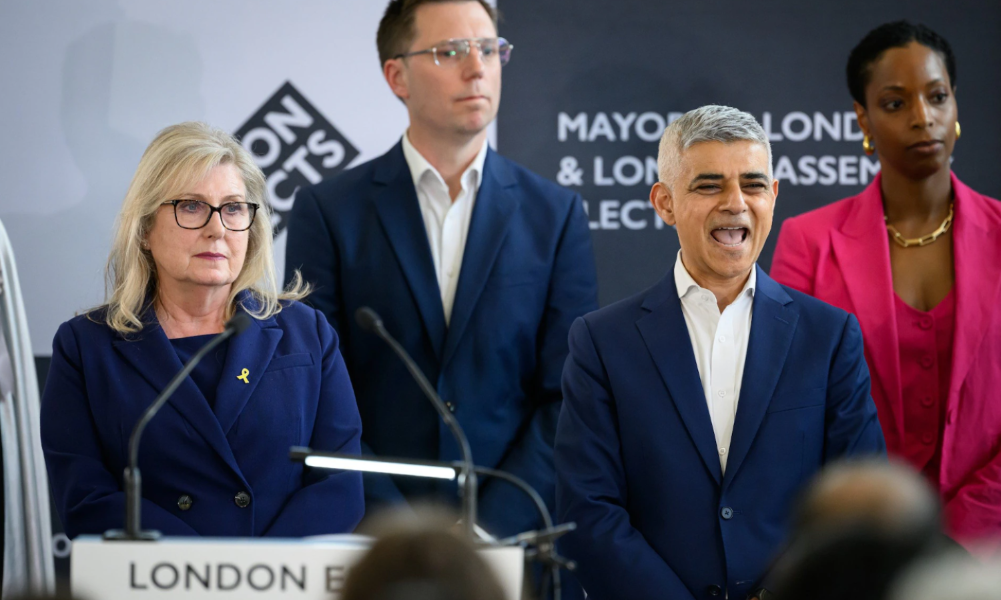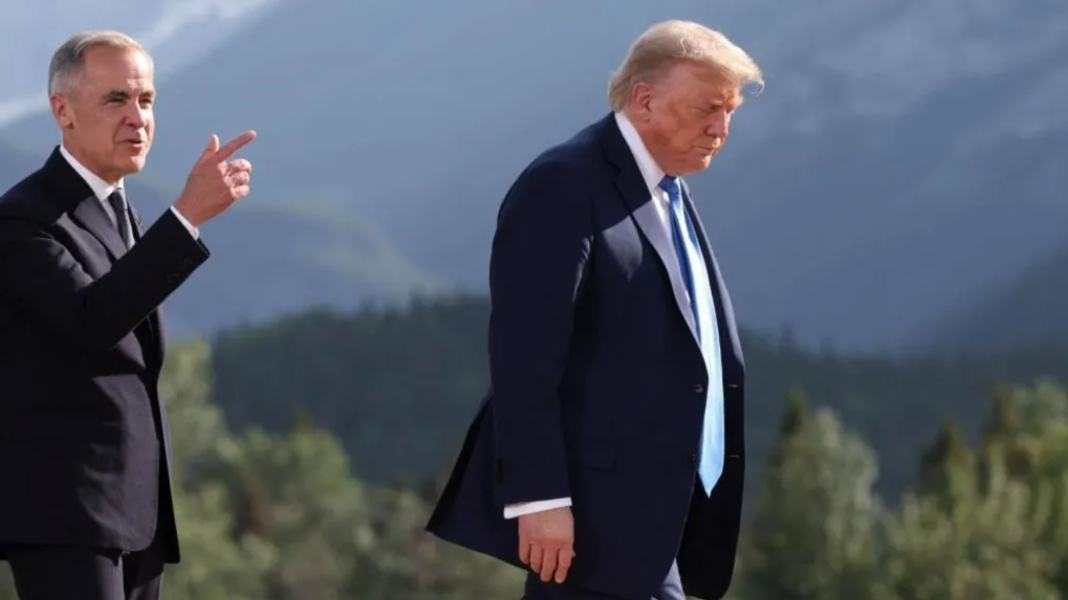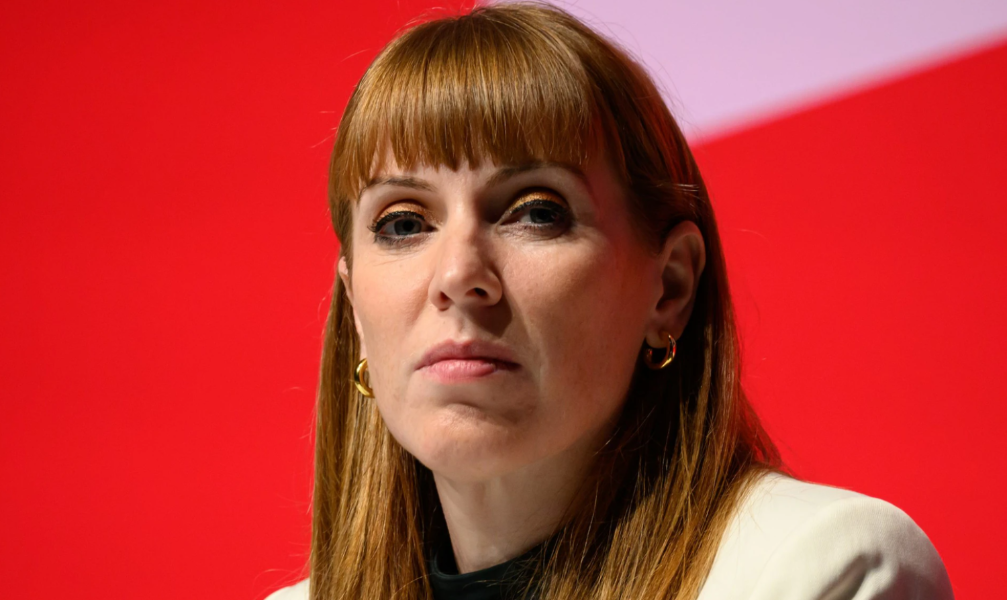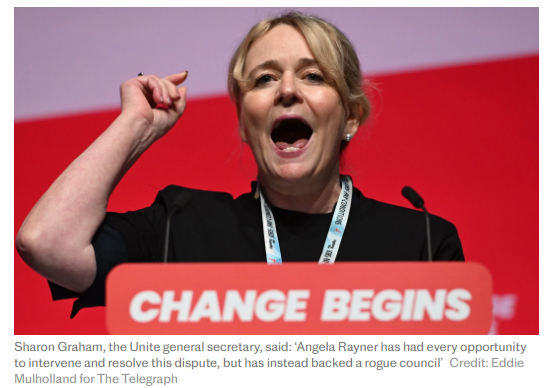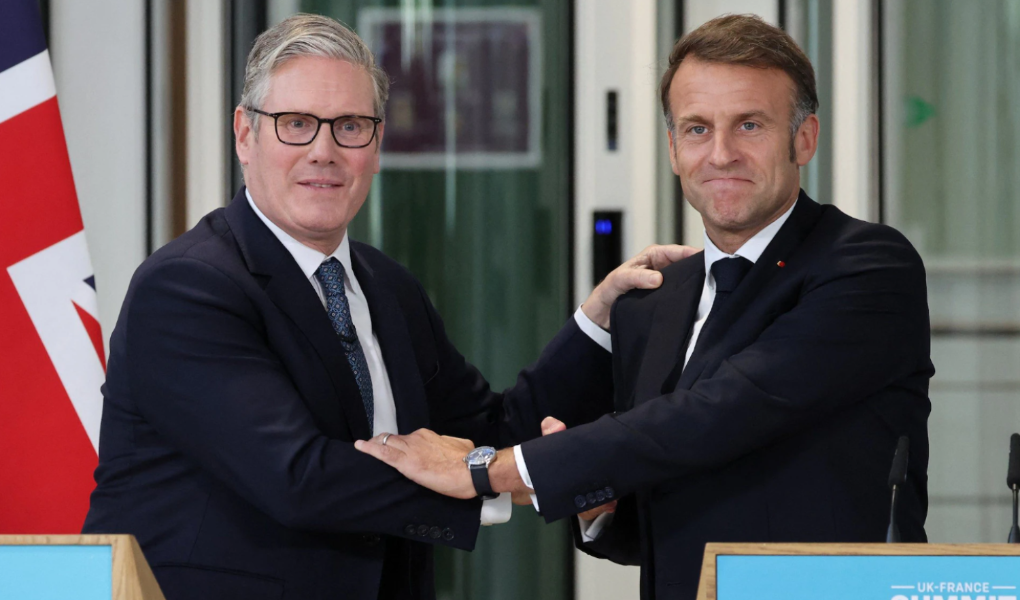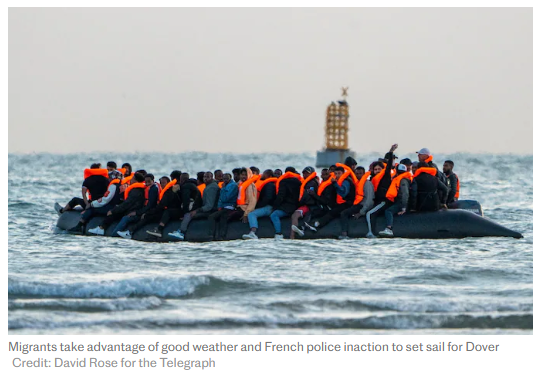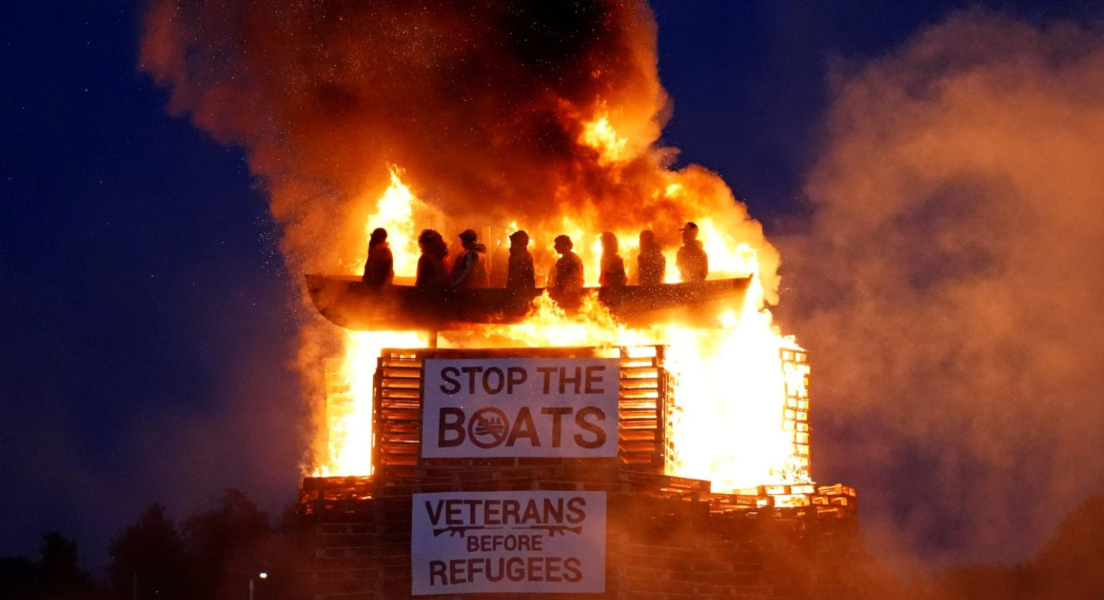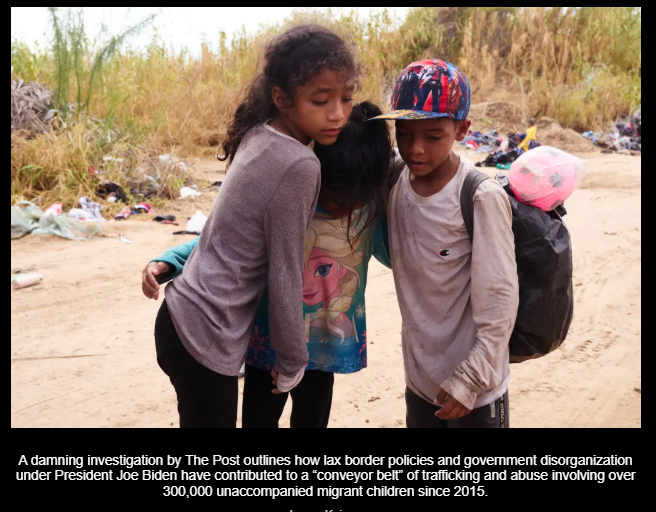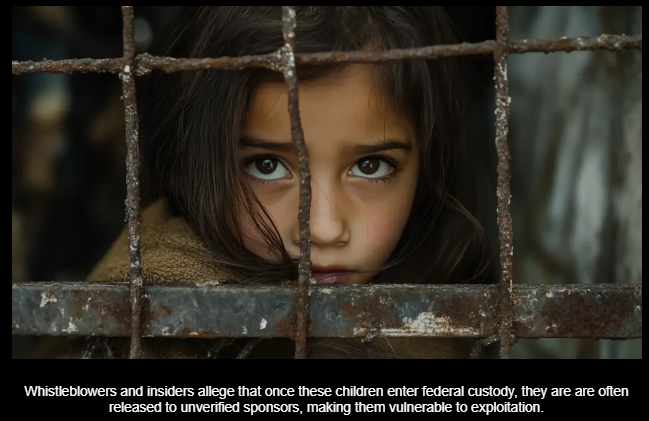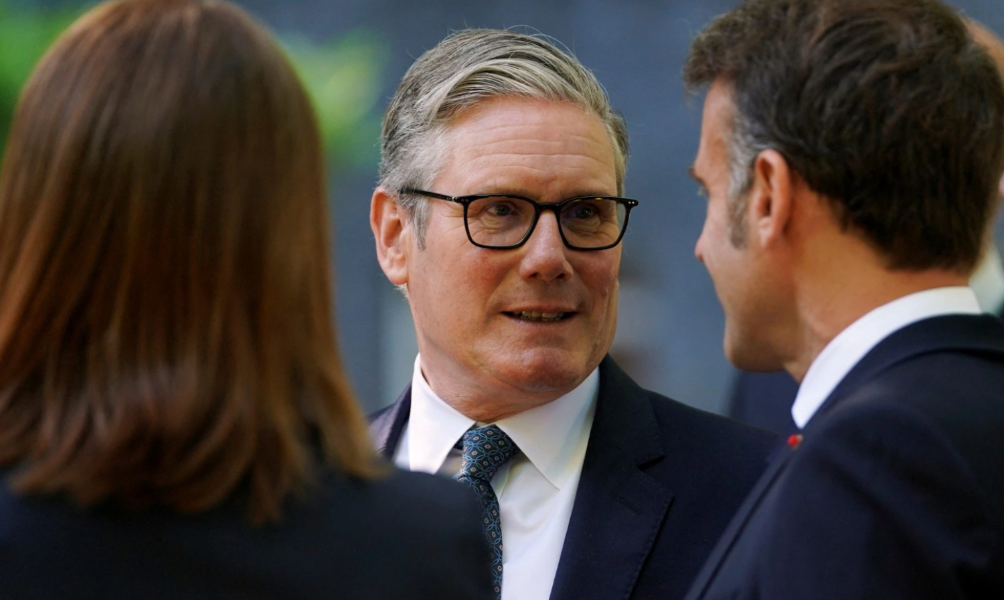-
Posts
10,807 -
Joined
-
Last visited
Profile Information
-
Location
Thailand
Previous Fields
-
Location
Thailand
Recent Profile Visitors
31,295 profile views
Social Media's Achievements
-
Polish Far-Right Politician Under Fire for Denying Auschwitz Gas Chambers Polish prosecutors have opened a preliminary investigation into Grzegorz Braun, a far-right member of the European Parliament, after he publicly claimed that the gas chambers at Auschwitz were a "fake." His controversial statement has provoked outrage across Poland and beyond, reigniting concerns about antisemitism and Holocaust denial among nationalist figures. Braun made the incendiary remarks during an interview on Poland’s Wnet radio, where he stated, “ritual murder is a fact, and such a thing as Auschwitz with its gas chambers is unfortunately a fake,” according to Polish news agency PAP. The interview was immediately cut short by the reporter. The statement drew immediate condemnation. Piotr Cywinski, director of the Auschwitz-Birkenau Memorial and Museum, announced plans to file a formal complaint, saying, “Denying the fact that gas chambers existed is not only a manifestation of anti-Semitism and an ideology of hatred; in Poland it is also a crime.” Under Polish law, denying Nazi crimes is a prosecutable offense. A spokesperson for the Warsaw district prosecutor's office, Piotr Antoni Skiba, confirmed that authorities had launched a preliminary investigation into Braun’s comments. This move signals that the government is taking the issue seriously, amid fears that such rhetoric threatens Poland’s international reputation and historical accountability. Braun has a history of inflammatory behavior. In 2023, he extinguished Hanukkah candles in the Polish parliament using a fire extinguisher during a national commemoration, an act widely condemned as antisemitic. He also ran for president earlier this year and captured over 6% of the vote in the first round, raising concerns about the traction of far-right ideologies among parts of the electorate. His recent remarks also referenced “ritual murder,” a long-debunked and dangerous conspiracy theory rooted in medieval Europe, which falsely accused Jews of killing Christian children for use in religious rituals. Historians universally reject the notion as baseless, and recognize it as a form of antisemitic propaganda. Poland’s Prime Minister Donald Tusk condemned Braun’s statements, calling them “a disgrace.” He emphasized the need to safeguard Poland’s image, stating, “we must do everything so that no one in the world associates Poland with such people, such faces and such actions.” Braun’s actions weren’t limited to rhetoric. On the same day his radio interview aired, he appeared in the northeastern town of Jedwabne, where he and a group attempted to block the departure of cars carrying participants in a ceremony marking the 1941 massacre of Jews by Polish neighbors under Nazi occupation. Among those delayed was Poland’s chief rabbi. Police had to intervene to clear the road. The Auschwitz death camp, located in southern Poland under Nazi occupation during World War II, was the site of the industrial murder of approximately 1.1 million people—most of them Jews—using gas chambers. Others murdered there included Poles, Roma, Soviet POWs, and gay people. As the world continues to combat Holocaust denial and antisemitism, Braun’s remarks are being seen not just as an isolated incident, but as part of a broader, troubling trend. Polish authorities, museum officials, and national leaders appear committed to holding him accountable. Adapted by ASEAN Now from ABC News 2025-07-14
-
Labour Reinstates Supplementary Voting for Mayors Amid Reform UK Gains The Labour government is set to overhaul the mayoral voting system in England in a move that could reshape the political landscape ahead of next year’s elections. Deputy Prime Minister and Local Government Secretary Angela Rayner has announced the reintroduction of the supplementary vote system, replacing the first-past-the-post method, which critics say unfairly benefits parties like Reform UK. The decision comes just months after Reform UK made significant gains in the May local elections, winning mayoralties in Greater Lincolnshire and Hull and East Yorkshire. One of those victories was secured with just 35 per cent of the vote—enough to win under the current first-past-the-post rules. Reform’s growing popularity, particularly in areas traditionally hostile to the Right, has prompted concern among Labour strategists that the vote-splitting effect among Left-leaning parties could lead to more unexpected losses. Angela Rayner framed the voting system change as part of a broader “radical reset,” saying, “We were elected on a promise of change, not just for a few areas cherry-picked by a Whitehall spreadsheet, but for the entire country. It was never going to be easy to deliver the growth our country desperately needed with the inheritance we were dumped with. But that’s why we are opting to devolve not dictate and delivering a Bill that will rebalance decade-old divides and empower communities. We’re ushering in a new dawn of regional power and bringing decision-making to a local level so that no single street or household is left behind and every community thrives from our Plan for Change.” Under the reintroduced supplementary vote system, voters rank candidates by preference. If no candidate gains more than 50 per cent of the first-choice votes, all but the top two are eliminated, and second-preference votes are distributed. This format had previously been used in London’s mayoral elections, helping Labour’s Sadiq Khan to victory in 2021, when he went from 40 per cent in the first round to a final tally of 55.2 per cent after second preferences were counted. Critics within Reform UK see the move as a calculated effort to blunt their recent momentum. A party spokesperson told The Telegraph, “Labour is now trying to stitch up next year’s mayoral elections in a deeply cynical attempt to diminish the success of Reform. We are on track to replicate our successes this May in next year’s elections, so it’s no wonder they are doing this now.” Reform, led by Nigel Farage, had pledged in previous manifestos to pursue electoral reform, favoring proportional representation. However, the surge in their popularity—currently polling at 30 per cent—has made them one of the biggest beneficiaries of first-past-the-post. In one notable example, Reform nearly captured the West of England mayoralty despite securing less than 25 per cent of the vote, thanks to a split among Labour, Green, and Liberal Democrat candidates. Their candidate, Arron Banks, came within 6,000 votes of victory. Despite the gains, the return to supplementary voting could hinder Reform’s chances in future contests, especially in Left-leaning urban areas where progressive voters are likely to coordinate more effectively through ranked preferences. This system has historically helped Labour by capturing second-choice support from Green, Lib Dem, and independent Left voters—a dynamic that Reform strategists fear could stall their rise. Labour has long struggled with the fragmentation of the Left vote under first-past-the-post, while the Conservatives benefited from a more unified base. But with the rise of Reform UK now threatening to splinter the Right, the political calculation has shifted. The supplementary vote could serve as a critical buffer for Labour as it seeks to consolidate control in England’s growing patchwork of devolved mayoralties. With the next London mayoral election not due until 2028, attention is already turning to potential candidates. Labour MP Dawn Butler has expressed interest in running, while Reform is reportedly seeking a high-profile figure to run on a tough-on-crime platform. Whether the voting change will be enough to contain Reform’s challenge remains to be seen, but Labour is making clear it intends to tilt the field back in its favor. Adapted by ASEAN Now from Daily Telegraph 2025-07-14
-
Canada’s Prime Minister Mark Carney came to power promising to stand firm against the United States. But as a fresh tariff threat from Donald Trump looms, critics are beginning to question whether his tough talk is fading into quiet concessions. Trump’s latest salvo came in the form of a letter threatening to slap a 35% tariff on Canadian goods starting August 1—a surprising move as Canadian and American negotiators work urgently toward a new trade agreement. The timing raised eyebrows in both countries, especially after Canada recently made what many saw as a significant concession: backing down on its planned Digital Services Tax (DST) targeting large tech companies after threats from the White House to shut down negotiations entirely. That retreat spurred criticism in Canada. “Maybe Prime Minister Mark Carney's elbows were getting tired,” wrote commentator Robyn Urback, mocking the hockey metaphor Carney had used on the campaign trail, when he pledged to keep his “elbows up” and confront U.S. pressure head-on. She described Canada’s back-and-forth strategy as a “chicken dance.” The criticism hasn’t stopped there. Blayne Haggart, a political science professor at Brock University, wrote in The Globe and Mail that Carney’s approach, especially his push for a comprehensive trade and security agreement, “makes a lick of sense.” On the DST retreat, Haggart concluded it had achieved “less than nothing.” Still, Carney’s government appears undeterred, and many Canadians remain cautiously supportive. Roland Paris, a former adviser on U.S.-Canada relations, told the BBC, “Much will depend on the final agreement,” adding, “If, in the end, Carney appears to have capitulated to Trump and we're left with a bad deal, he will pay a political price at home.” This isn’t the first time Canada has sought to placate the Trump administration. Earlier this year, the Carney government pledged C$1.3 billion to bolster border security and appointed a “fentanyl czar” in response to U.S. claims the drug was flowing north to south. Yet even with these moves, Trump again referenced the drug in his latest tariff letter. Carney’s critics point to another missed opportunity for pushback: when Trump doubled tariffs on Canadian steel and aluminium last month, the Prime Minister declined to retaliate. His response to the new 35% threat has also been measured. “Throughout the current trade negotiations with the United States, the Canadian government has steadfastly defended our workers and businesses,” Carney said in a written statement, reaffirming his commitment to talks with a revised deadline now set for August 1. Fortunately for Canada, the 35% tariff would not apply—yet—to goods covered under the US-Mexico-Canada Agreement (USMCA), which protects a majority of cross-border trade. Still, the threat underscores the volatility of Trump’s approach. The former president has issued similar letters to over 20 countries as part of his broader plan to renegotiate U.S. trade partnerships. In Canada, opposition parties have rallied around a shared resistance to Trump’s tactics. Conservative leader Pierre Poilievre vowed to “secure the best deal for Canada,” while British Columbia Premier David Eby called Trump’s latest message “one more reminder of why Canadians need to come together.” Analysts note that Canada, despite its smaller economy, has leverage. Fen Hampson, a Carleton University professor of international affairs, noted that “it is American consumers who are going to pay the tariffs, not us.” Many U.S. manufacturers rely on Canadian inputs, especially in industries such as steel and aluminium, which are already facing a steep 50% tariff. “You can't judge the outcome of negotiations by the last move or the concession that's made,” Hampson added. “You can only judge it by its outcome.” Carney, meanwhile, has made efforts to diversify Canada’s trade ties, signing an arms deal with the European Union and pushing to eliminate internal trade barriers. Pressed on Friday about Trump’s escalating threats, Industry Minister Mélanie Joly was terse. “We do not negotiate in public,” she said, firmly denying that the government was caving. “We're dealing with a very unpredictable US administration,” she added, “and we're not the only ones.” Adapted by ASEAN Now from BBC 2025-07-14
-
Title: Labour in Turmoil as Unite Suspends Rayner and Threatens to Cut Ties Angela Rayner has been suspended by Unite the Union amid an escalating dispute over a bin strike in Birmingham, with the powerful union also announcing a full review of its relationship with the Labour Party — a move that could deliver a serious financial blow to Keir Starmer’s government. Rayner, who serves as Deputy Prime Minister and has been a long-time ally of the union movement, was suspended on Friday following a vote at Unite’s policy conference in Brighton. The union accused her of supporting Birmingham’s Labour-run council, which it says used “fire and rehire” tactics and “peddled lies” during ongoing negotiations with striking bin workers. Unite stated her actions brought the union “into disrepute,” triggering a formal investigation that may lead to her expulsion. While Rayner reportedly believes she had already resigned her Unite membership months ago, a union spokesperson said she was still officially listed as a member as of Friday. Her government register of interests, updated on May 29, also confirmed her then-active status. Sharon Graham, Unite’s general secretary, minced no words in condemning Rayner’s position. “Unite is crystal clear that it will call out bad employers regardless of the colour of their rosette. Angela Rayner has had every opportunity to intervene and resolve this dispute, but has instead backed a rogue council that has peddled lies and smeared its workers fighting huge pay cuts,” she said. “The disgraceful actions of the Government and a so-called Labour council is essentially fire and rehire and makes a joke of the Employment Relations Act promises. People up and down the country are asking whose side is the Labour Government on and coming up with the answer ‘not workers’.” The fallout has extended beyond Rayner. Unite also suspended Birmingham City Council leader John Cotton and several Labour councillors. The emergency motion passed at the conference committed the union to reconsidering its relationship with Labour, a process that could result in funding being slashed if the dispute and redundancy threats continue. This is no idle threat. Unite, the Labour Party’s largest affiliated union, contributed £500,000 to MPs during the last general election campaign. Rayner herself received £5,000 from Unite for campaign purposes in 2024, according to parliamentary records. However, the union notably declined to endorse Starmer’s manifesto and has been a vocal critic of his positions on key policies such as the net zero 2030 pledge and welfare reform. Unite’s tension with Starmer is part of a broader divide between Labour’s leadership and its traditional left-wing base. While Unite supported Rayner’s Employment Rights Bill — legislation that would make it easier for workers to unionise and take industrial action — the union has frequently opposed other party decisions, including reductions in the winter fuel allowance. The Birmingham bin strike has become the flashpoint. Workers have been striking since March over what they describe as real-terms pay cuts amounting to £8,000 annually. Birmingham council, grappling with budget constraints, insists it has reached the “absolute limit” of what it can offer. Rayner had urged workers to accept the deal to end the “misery and disruption” faced by Birmingham residents. In response to the mounting crisis, Downing Street defended its role in helping manage the strike’s consequences. “Our priority is, and always has been, Birmingham’s residents,” said the Prime Minister’s official spokesman. “Unite’s industrial action caused disruption to waste collection. We have worked intensively with the council to tackle the backlog and clean up the streets for the residents and for public health, and we remain in close contact with the council and continue to monitor the situation as we support its recovery and transformation.” The clash now threatens not just bin services in Birmingham but the very financial foundations of Labour’s alliance with organised labour — and it has placed Angela Rayner at the centre of a storm that could reshape the party’s future. Adapted by ASEAN Now from Daily Telegraph 2025-07-14
-
Prince Harry’s Legal Team Ordered to Disclose Witness Payments in Daily Mail Case Prince Harry and his fellow celebrity claimants have been dealt a setback in their legal battle against the publisher of the Daily Mail, after a High Court judge ordered their lawyers to disclose details of payments made to witnesses and the circumstances under which they first learned they were alleged victims of unlawful information gathering. The case, which also includes public figures such as Sir Elton John, actresses Sadie Frost and Liz Hurley, revolves around serious allegations of misconduct by Associated Newspapers. The publisher is accused of engaging in or commissioning unlawful activities, including phone tapping, accessing private records through deception — known as “blagging” — and even burglary. Associated Newspapers has fiercely denied the allegations, calling them “lurid” and “simply preposterous.” However, the credibility of the celebrity claimants’ case is now under scrutiny. Mr Justice Nicklin ruled on Friday that the lawyers representing the group must disclose any documents “that can support a case that a witness has been paid or offered other inducement for their evidence, whether directly or indirectly.” The judge stressed that Associated Newspapers could reasonably use such information to question the reliability of the claimants’ witnesses. According to Associated Newspapers, the few documents that have been disclosed so far suggest that “payments were made or offered” to obtain evidence and related invoices. These payments are said to have been made by the legal team’s so-called “research team”, which includes former Liberal Democrat MP Evan Harris and journalist Graham Johnson. Johnson was given a suspended prison sentence in 2014 after admitting to phone hacking while working for the Sunday Mirror. The judge took issue with the way the claimants’ legal team has handled disclosures, stating that their position has been “undermined by their inconsistent and incoherent approach to disclosure of documents relating to payments to potential witnesses and/or other inducements.” He added that “there are serious questions to be answered” about the role and status of this research team, and made clear his view that “it appears highly likely that members of the research team do hold documents that fall within the claimants’ standard disclosure obligations, and which have not yet been disclosed.” The claimants must also provide further detail on what the court described as the “watershed” moment — when their lawyers first informed them they had allegedly been victims of unlawful surveillance. This timeline could prove important in determining the strength and consistency of their case. The lawsuit is shaping up to be one of the most expensive and high-profile legal battles in recent memory, with costs projected to reach as much as £38 million. The trial is scheduled to begin in January and is expected to last for approximately nine weeks. Adapted by ASEAN Now from The Times 2025-07-14
- 1 reply
-
- 1
-

-
Off topic inflammatory posts claiming genocide is being committed have been removed. Please discuss the topic which is about the alleged "Humanitarian Centers" There are multiple topics on that term already, here are just a few: Ireland’s Move at the ICJ Redefining The Meaning of Genocide to get a Conviction Provisional Decision Today: ICJ Weighs Emergency Measures Amid Allegations of Genocide in Gaza Israel shows ‘chilling’ intent to commit genocide in Gaza, South Africa tells UN court
-
Macron Blames Brexit for Channel Migrant Surge as UK-French Deal Faces Turmoil French President Emmanuel Macron has directly blamed Brexit for the worsening migrant crisis in the English Channel, claiming the British public was “sold a lie” and that leaving the EU has made illegal immigration harder to combat. His comments came as up to 600 migrants crossed the Channel in small boats on the same day that Prime Minister Sir Keir Starmer announced a new “one in, one out” migration deal with France. Speaking at a joint press conference with Starmer in Paris, Macron said, “The British people had been sold a lie that leaving the EU would make it possible to fight more effectively against illegal immigration.” He insisted that migration issues require “cooperation, a European approach,” rather than the isolated promises of “populists.” Pointing out that the UK now has “no migratory deal” with the EU, Macron warned that this “creates an incentive to make the crossing, the precise opposite of what Brexit had promised.” The French president also recalled how road and rail migration routes had been effectively sealed prior to Brexit. “Let’s recall a few years ago, it was the subject of daily comments. We managed to fully close off these routes,” he said. The UK has seen an alarming rise in small-boat crossings since leaving the EU, growing from 1,843 in 2019 to 45,774 in 2022. So far this year, a record 21,117 migrants have reached the UK—a 50 percent increase compared to the same period last year. Despite Macron acknowledging that the newly announced return deal has yet to be formally agreed with the EU and will likely face legal hurdles, Starmer insisted it would take effect within weeks. He described it as a deterrent to people smugglers. “The purpose of that is a pilot to break the model and therefore obviously the numbers, if successful, will ramp up,” Starmer said. Under the proposed scheme, small-boat migrants arriving from France would be denied asylum, detained, and returned to France under inadmissibility grounds. In exchange, the UK would accept an equal number of asylum seekers currently in France via an online application platform. French officials have initially agreed to take back up to 50 migrants per week—just 2,600 annually, a mere 6 percent of the 44,000 who have crossed since Labour’s election victory. However, British officials anticipate a wave of human rights appeals from migrants selected for removal, citing protections under articles 3 and 8 of the European Convention on Human Rights, which protect against persecution and uphold the right to family life. Moreover, those returned to France would not be detained, raising fears they could simply attempt the crossing again. The UK’s capacity to detain migrants is also limited, with just 2,200 spaces available in immigration removal centres, though the government plans to expand this by 1,000. A new maritime agreement had been expected to be finalised at the summit, enabling French officers to intercept boats at sea. However, Macron confirmed the protocol was still under review. “It aims to better share our information, to better fight against smuggling gangs and act by narrowly integrating our maritime activities,” he said. Sir Keir used the press conference to take a swipe at Reform UK leader Nigel Farage, saying, “Whilst we have been working hard to get the returns agreement, others have been simply taking pictures of the problem.” Farage had spent the day filming Channel crossings and later called the agreement “a humiliation for Brexit Britain,” accusing the UK of bowing to Macron’s demands. Meanwhile, Conservative opposition figures sharply criticised Labour’s approach. Shadow Home Secretary Chris Philp said, “Starmer’s first move in power was to rip up the Illegal Migration Act, scrap the Rwanda deterrent plan, weaken age checks and reopen the path to citizenship for illegal migrants. This is a green light to people smugglers.” He claimed returning 50 migrants a week was inadequate, adding, “The Conservatives would restore the Rwanda plan… We’ve had enough of Starmer’s weak and ineffective gimmicks.” Adapted by ASEAN Now from Daily Telegraph 2025-07-12
-
Climate Fear Stagnant for Decades Despite Alarming Events CNN’s data analyst Harry Enten has highlighted a striking lack of change in American attitudes toward climate change over the past quarter-century, arguing that climate activists have failed to persuade the public of the crisis's urgency. Speaking on CNN, Enten cited polling data from 2025 showing that just 40% of Americans report being “afraid” of climate change—exactly the same figure as in the year 2000. “Americans aren't afraid of climate change, climate activists have not successfully made the case to the American people,” he said. “We have data going back to 1989.” Enten pointed out that despite decades of extreme weather events—raging wildfires, deadly heat waves, catastrophic hurricanes, and record-breaking droughts—the level of concern among the public has barely budged. “Despite all of these horrible weather events, the percentage of Americans who are greatly worried has stayed pretty consistent,” he noted. The remarks come at a time when environmental groups and scientific institutions are doubling down on warnings that the window to mitigate global warming is rapidly closing. However, Enten’s analysis suggests that even in the face of overwhelming evidence and visible climate impacts, activists have struggled to shift public opinion in a meaningful way. His comments raise questions about the effectiveness of environmental messaging, the role of political polarization, and whether personal experience with climate-related disasters translates into sustained concern or policy support. As extreme weather continues to affect more communities, the data indicates that fear alone may not be driving broader climate action—or voter behavior—in the United States. Adapted by ASEAN Now from MSN 2025-07-12
-
Hate Crime Probe Launched After Migrant Effigy Torched on Northern Ireland Bonfire Police in Northern Ireland have launched a hate crime investigation after a bonfire topped with a model of a migrant boat and a sign reading “stop the boats” was set ablaze during loyalist celebrations in County Tyrone. The effigy, which featured 12 dummies wearing life jackets, was erected in the village of Moygashel near Dungannon as part of the annual July 12 festivities, a date marking the Protestant victory at the Battle of the Boyne in 1689. Despite widespread condemnation, the bonfire was ignited at 11pm on Thursday. Alongside the model dinghy, an Irish tricolour was hoisted and another sign that read “veterans before refugees” was placed next to an image of two guns. The display drew swift and widespread outrage from political leaders, church officials, and human rights advocates, all of whom described it as racist and dehumanising. The Police Service of Northern Ireland confirmed it had received multiple complaints. “Police are investigating this hate incident,” said a spokesperson. “Police are here to help those who are or who feel vulnerable, to keep people safe.” The statement added that officers aim to foster safe communities by working closely with local representatives and stakeholders, but stressed that action must remain within the legal framework. The condemnation was swift. Sinn Féin assembly member for Fermanagh and South Tyrone, Colm Gildernew, called it a “vile and deplorable act” and said it was “clearly a hate crime.” John McDowell, the Church of Ireland’s Archbishop of Armagh and Primate of All Ireland, also criticised the display, calling it “racist, threatening and offensive,” and further described it as “inhuman and deeply sub-Christian.” Social Democratic and Labour Party councillor Malachy Quinn expressed his outrage to the Irish News, saying: “I am absolutely disgusted to see yet another overtly racist and threatening display appear on the bonfire in Moygashel. Those responsible for this hateful display claim to be celebrating British culture. Let’s be clear: racism and intimidation are not culture. This isn’t pride – it’s poison. It is an affront to every decent person in our community.” Patrick Corrigan, Amnesty International’s director for Northern Ireland, added: “This is a vile, dehumanising act that fuels hatred and racism.” Even within the unionist community, the bonfire display drew criticism. Northern Ireland’s largest unionist party, the DUP, said such provocations had no place in cultural celebrations. A party spokesman said, “We oppose placing effigies or other provocative symbols on bonfires. The July 11 bonfires are a historic and cultural tradition… These should be positive cultural celebrations and we support those within our community that wish to celebrate their culture by continuing with that tradition in a peaceful, positive and safe way.” However, loyalist activist Jamie Bryson defended the display, citing a European Court of Human Rights ruling which he said deemed the burning of effigies to be “legitimate political expression.” He added, “Those who have spent recent months defending Kneecap and labelling their performances as artistic expression are the same people criticising this act of political protest,” referencing the pro-united Ireland rap group. In a statement on social media, the Moygashel Bonfire Association rejected accusations of racism or hate, writing: “This year’s bonfire ‘topper’ should not be seen as racist, threatening or offensive... We believe this unfettered invasion is the biggest threat to the UK since Adolph Hitler.” Elsewhere in Belfast, controversy flared around a separate bonfire containing asbestos and situated dangerously close to an electricity substation serving two hospitals. Despite safety concerns and a formal request from Belfast City Council, the PSNI declined to assist in dismantling the structure. In a statement issued Thursday, police said: “Following comprehensive engagement with all relevant stakeholders, an evidence-based assessment, and taking into consideration all of the risks associated with the removal, we have determined that police should not assist the proposed actions of Belfast City Council.” This is not the first time Moygashel’s bonfire traditions have drawn criticism. Last year, a mock police car was incinerated, sparking particular concern in a region where law enforcement is frequently the target of violence. Adapted by ASEAN Now from Daily Telegraph 2025-07-12
- 30 replies
-
- 12
-

-

-

-
Secret Service Agent Suspended After Trump Assassination Attempt in Butler A Secret Service agent assigned to protect Donald Trump has been suspended, along with several others from the Pittsburgh field office, following disciplinary action in the wake of the failed July 13, 2024, assassination attempt in Butler, Pennsylvania. The agent, identified as Myosoty Perez, was part of the security detail tasked with safeguarding the former president during the campaign event where he was shot. She was photographed accompanying Trump as he arrived at the rally and was reportedly one of the advance team members sent to secure the location ahead of time. Perez’s attorney, Larry Berger, confirmed her suspension and said she had “fully cooperated already through all the investigations into the matter” and was now considering her next steps. “She was a site agent — she wasn’t in charge of overall security that day,” Berger clarified. In total, six Secret Service agents have been suspended for between 10 and 45 days. One of those disciplined had been responsible for conducting a site walk-through and helping coordinate event security. In addition to Perez, four leaders from the Pittsburgh field office and a counter-sniper team member were also suspended. The agency’s handling of the event has come under intense scrutiny, especially after it was revealed that the would-be assassin, Thomas Matthew Crooks, was able to crawl onto a rooftop and fire multiple shots at Trump. Crooks was ultimately killed by a counter-sniper. The fallout from the incident has been severe. Two weeks after the shooting, Secret Service Director Kimberly Cheatle resigned amid bipartisan outrage. Cheatle, a 28-year veteran of the agency, was replaced by Sean Curran — who had been on stage with Trump during the attack and was appointed to the position by the former president in January. While some agents faced disciplinary action, those present in the now-famous “Fight! Fight! Fight!” photo, which shows Trump moments after being shot with blood visible on his ear, were not punished. According to sources, “they did exactly what they were supposed to do that day.” However, for those who lost loved ones at the rally, the explanations have been cold comfort. Helen Comperatore, widow of firefighter Corey Comperatore, who was killed by one of the bullets intended for Trump, lashed out at the Secret Service. “I think the Secret Service is garbage,” she told The Post. “All I’ve wanted this entire time was to sit down with the men who screwed up that day and find out why. Why? Why at that rally? Why at that one in Butler?” Her frustration was palpable as she recounted the agency’s failings. “They never picked up radios that day. They brought the wrong cables for their drones. They were a hot mess. There had to be a reason why and I want to know.” The suspensions mark the first wave of formal disciplinary action taken in response to the attempt on Trump’s life — but for families like the Comperatores, they may be only the beginning of what they feel is long-overdue accountability. Adapted by ASEAN Now from NYP 2025-07-12
-
Fetterman Slams Mamdani After Primary Win: “Not Even a Democrat” Senator John Fetterman of Pennsylvania didn’t hold back in his criticism of New York City mayoral candidate Zohran Mamdani on Thursday, calling the self-described socialist “not even a Democrat” and accusing him of offering Republicans a political gift with his primary win. “Everything that I’ve read on him, I don’t really agree with virtually any of it, politically,” Fetterman said during an interview with Fox News, referring to Mamdani. “That’s just where I’m at as a Democrat. He’s not even a Democrat, honestly.” Mamdani, a Queens assemblyman backed by progressive and socialist groups, pulled off a surprise upset in the city’s Democratic primary, defeating former Governor Andrew Cuomo. But Fetterman wasn’t celebrating. Instead, he warned that Mamdani’s victory could be a damaging development for Democrats nationwide. “Christmas in July for the GOP,” he said of the outcome. Throughout his campaign, Mamdani proposed sweeping reforms that have energized the city’s left-wing voters. His platform included eliminating fares on city buses, making tuition at the City University of New York free, freezing rent citywide, and expanding taxpayer-funded services such as child care and grocery stores. But while these policies resonated in the five boroughs, Fetterman argued that Mamdani’s success does not represent the national political landscape. “It’s definitely not Pennsylvania. It’s not Wisconsin. It’s not Nevada,” Fetterman said. “If you look at any of the battleground states, New York City has no actual relevance to the kinds of states and the kind of races which determine that in 2028.” Fetterman added that Republicans would almost certainly use Mamdani’s agenda in future attack ads across the country. “Is it going to be useful for attack campaigns? Absolutely,” he said. “He’s a gift to the Republicans in that way, but there’s no lessons to be learned.” He further dismissed the political implications of Mamdani’s win, suggesting it reflects more on New York’s unique political climate than any broader trend. “There’s no special kind of insight. For New York City, politically, that’s a circus mirror of the reality of politics and the politics of our country,” he said. The general election for New York City mayor is shaping up to be a chaotic contest, with Mamdani likely to face a number of high-profile challengers. Independent former federal prosecutor Jim Walden has entered the race, as has current Mayor Eric Adams, who is also running as an independent after growing alienated from the Democratic Party. Former Governor Andrew Cuomo may also continue his campaign as an independent. On the Republican side, Guardian Angels co-founder Curtis Sliwa is running once again for the city’s top job. Mamdani’s unexpected primary victory has intensified debates within the Democratic Party over the direction of its urban politics. But for Fetterman, the message is clear: Mamdani’s politics may resonate in Queens, but they don’t belong in the national conversation. Related Topics: Zohran Mamdani’s Campus Group Hosted Speaker Who Blamed U.S. for 9/11 NYC Mayoral Hopeful Under Fire for Past Comments Defending Al Qaeda Cleric Zohran Mamdani NYC mayoral candidate Under Fire for Praising Convicted Hamas Funders Adapted by ASEAN Now from NYP 2025-07-12
-
Farage Declares Channel Migrant Crisis a ‘Crime’ as He Watches Handover at Sea As dawn broke over the English Channel, Nigel Farage stood aboard a fishing boat, freshly hooked mackerel in hand, when his attention turned from fishing to what he described as a “crime” unfolding on the waters between France and Britain. At 8am, a message crackled over the maritime radio from a French warship, not about a distress call, but a request for something unexpected: the return of 40 lifejackets it had distributed to migrants earlier that morning. Farage, accompanied by The Times and the captain of the charter vessel Louise Jane II, Andy King, had been observing what he assumed would be a routine handover of migrants from French to British authorities. But the request for lifejackets signalled an unusual twist. The French warship had escorted a dinghy launched from Wissant beach, carrying 78 migrants, into British waters, where the UK Border Force ship Hurricane waited to take over. Before the transfer, the French deployed a rigid inflatable boat to collect the lifejackets — a first, according to King, who had never before witnessed the French reclaim equipment ahead of a handover. The handover itself was orderly. From no more than 300 metres away, Farage and others watched as migrants—mostly young African men, along with one woman and three children—climbed aboard Hurricane one by one. Border Force officers called instructions to prevent the dinghy from capsizing, then provided blankets and hot drinks inside the catamaran’s cabin. Once emptied, the dinghy was collected by MCS Taku, the Border Force vessel responsible for recovering the remnants of such crossings. “This is a crime and yet everyone seems happy: Border Force are happy, the French are happy,” said Farage through binoculars, visibly angry. The timing, just hours before a press conference between Prime Minister Sir Keir Starmer and President Emmanuel Macron unveiling a new "one in, one out" migrant return deal, could not have been more politically symbolic. Farage used the moment to announce a new Reform UK policy calling for all migrants arriving via small boats to be held in decommissioned migrant camps until deportation. “Do what Trump does. Just fly them back,” he told The Times, proposing mass deportations—even to conflict zones such as Afghanistan and Eritrea—and urging the UK to follow the U.S. example in El Salvador. He insisted the Royal Navy should tow boats back to France if deportations fail. “Ultimately, the last solution would be for the Royal Marines to take them back to France. If it comes to that, it comes to that. But I don’t [think] it would need to.” Farage believes he could end Channel crossings within weeks if elected Prime Minister. “It wouldn’t take us very long,” he said, outlining plans to declare a national emergency on day one and override the European Convention on Human Rights, eventually leading to a full withdrawal from the treaty. That day, more than 200 migrants successfully crossed the Channel, with many more intercepted by French police. The crossings required full deployment of British assets: Hurricane, Taku, two fast ribs to establish a safety perimeter, and even a coastguard helicopter on standby. French authorities, meanwhile, warned Captain King to “alter your course now” as his boat neared the migrant dinghy. For King, the migrant traffic is personal. He now earns his living ferrying swimmers across the Channel, a booming niche industry due to the collapse of fishing. “I’m booked up with swimmers until 2028,” he said, noting that he charges £3,800 per swimmer. But threats from the French ministry to suspend his licence during migrant surges could leave him out of work. He also spoke of routine abuse from migrants as they pass: “They shout things like, ‘Fat English pigs! Dirty bastards!’ They throw the ‘w****r’ sign and flick the middle finger. I’ve also heard people shout, ‘Allahu Akbar’.” By 11am, the boat turned back to Dover. As Farage cleaned mackerel on deck, he reflected on the day’s events with satisfaction. “I could not believe my luck,” he said, “at the timing of this trip.” Adapted by ASEAN Now from The Times 2025-07-12
-
Inside the Exploitation of Migrant Children at America’s Southern Border A staggering number of vulnerable migrant children were swept into a clandestine web of abuse, trafficking, and labor exploitation under the chaotic border policies of the Biden administration, according to whistleblowers and federal insiders. This so-called “conveyor belt” of exploitation is now under scrutiny, as the Trump administration enacts measures to shut it down. Between 2019 and 2023, the Department of Homeland Security encountered 448,000 unaccompanied minors. Many of them, some as young as five, arrived at the border with only phone numbers scrawled on their arms or clothing. These children were swiftly moved to the Office of Refugee Resettlement (ORR) and handed off to private contractors who, according to insiders, failed to properly verify their supposed sponsors. Morgan Lerette, a former Army intelligence officer and Blackwater contractor, revealed the mechanics of this abuse to The Post. “The officers were literally handing the kids right back off to the other side of the smuggling rings in the US,” he said. Lerette described how smuggling networks used fake paperwork and unverified addresses, some leading to storage units or strip clubs, to claim custody of children. “American taxpayers are essentially paying for child sex trafficking,” Lerette charged. “It’s a conveyor belt. It’s all about using private military companies and nonprofits to shift accountability. But DHS owns the entire supply chain, just through contracts.” In one 2024 case, Homeland Security Investigations uncovered a smuggling operation using melatonin-sedated children under the age of five and the birth certificates of U.S. citizen children to sneak them across the border from Nuevo Laredo, Mexico, into Texas. ICE reported that the children were later dropped off at stash houses before being dispersed throughout the country. Vanessa Valadez, 23, and five co-conspirators later pleaded guilty to their roles in the scheme. A veteran Border Patrol agent, speaking anonymously, echoed Lerette’s concerns. “Anyone could claim they are parents or relatives of the children and there was no way to verify it. All anyone had to go off is unverified claims by the children themselves or phone numbers,” he said. Under the Trump administration, new protocols have been enacted to stop this practice. Sponsors must now present U.S. identification or green card documentation, proof of income, agree to fingerprinting, and, when claiming familial ties, submit to DNA testing. The scale of the problem remains daunting. In March, the DHS Office of the Inspector General revealed that 233,000 children had no formal paperwork filed by ICE and now must be tracked down. Of those, 31,000 had incorrect or commercial addresses listed for sponsors, while 43,000 missed their scheduled court dates. According to the New York Times, the Department of Health and Human Services has lost contact with at least 85,000 migrant children. Tom Homan, a former ICE director, described the harrowing reality faced by some of these missing children: a 14-year-old pregnant girl found living with adult men, children working on ranches or chicken farms, and others trapped in grueling labor conditions in slaughterhouses, clothing factories, and fields supplying major U.S. brands. “It’s sex trafficking, child labor, exploiting the families,” said Lerette. Southwest Key, the largest private provider of shelter for unaccompanied minors, came under fire after a 2023 Department of Justice lawsuit alleged widespread abuse across its 29 shelters. The complaint documented over 100 reports of sexual abuse, including rape and coercion. One disturbing case involved a youth care worker at Casa Franklin in El Paso who allegedly abused several young girls and threatened to harm their families if they spoke out. At Casa Montezuma, another girl wrote of her alleged abuser: “He can do whatever he pleases because he is a Shift Leader, he’s the boss.” Though Southwest Key denied the allegations represented the full scope of its work, Trump’s administration ended the company’s nearly $3 billion contract in March, leading to the furlough of 5,000 staff. The DOJ lawsuit was subsequently dropped. Despite the crackdown, questions remain over how so many children were lost to a system meant to protect them — and whether the damage can ever truly be undone. Adapted by ASEAN Now from NYP 2025-07-12
-
Surviving the Unthinkable: Nina Aouilk’s Fight Against Honour Killings and Forced Marriage Nina Aouilk was just 21 when she survived an attempted honour killing by her own family in their UK home, left bleeding and broken after refusing to remain in an arranged marriage. Born in the UK with Punjabi heritage, Nina endured a childhood marked by severe abuse, beginning at the age of six when she was treated as a servant in her own home, confined to the kitchen because, in her culture, girls were “not needed or wanted.” This torment escalated horrifically at 14, when her father and his friends brutally gang-raped her. “My father was the first person to instigate it. They treated me like I was disposable. I was just a girl,” she recalled. When she resisted, her father broke her nose, and the violence left her for dead that night. After this assault, Nina’s father declared she was no longer fit for an arranged marriage because she was “not a virgin” and had “spoiled herself.” Her childhood innocence was stolen, and she was never the same again. Worse still, her father arranged to sell her to one of her rapists in a forced child marriage, exchanging money, gold, and valuables to keep the secret and protect the family’s reputation. At 16, she was trapped in a sham wedding and moved in with her new husband and his family, where her suffering continued. She was subjected to unimaginable cruelty, including being stripped naked, tied up, and having her face forced into her own urine. “My father-in-law raped me practically every morning and sexually abused me throughout the day,” Nina revealed. Her room was under the stairs, with no door, and though others in the household knew what was happening, no one intervened. At 21, Nina decided to leave her husband after a friend assured her her parents would support her. Instead, she was met with brutal violence. Her father and brother awaited her, having already planned to kill her to restore the family’s “honour” after she had “brought shame” by leaving the marriage. “He pulled my arm back and broke it, then they broke my jaw. They kept beating me until I fell,” she said. Her father pressed his heel into her throat in an attempted honour killing. The attack only ceased when another brother intervened, suggesting they take her to India to finish the job. Nina was left unconscious in a pool of her own blood, resembling a scene from a horror film. Realizing they planned to take her abroad to be killed, Nina summoned the strength to escape. “When everything is broken in your body, it’s your mind that can save you. And that’s what saved me,” she said. With the quiet support of her dog, she fled to a nearby park and was later taken to a police station. Initially, the officer seemed sympathetic until she mentioned “honour killing,” at which point he stopped taking notes and called an ambulance, seemingly overwhelmed by the case’s complexity. After hospital treatment, Nina was placed in a women’s hostel and began rebuilding her life. Within two years, she launched a successful print machinery business and became a millionaire, all while raising her first child. However, her trauma was not over; she later escaped another abusive relationship where she was subjected to further violence. In 2023, Nina founded the charity End Honour Killings, which works with police and communities to support victims of forced marriage and honour-based violence. She emphasizes that honour killings still occur in the UK, with an estimated 12 cases annually. “We get messages every day from girls saying they need help,” she said. “They’ve come home from school, and their parents are trying to force them into marriage or they’re being sexually abused by a family member — but they can’t talk about it.” Nina stresses the urgent need to educate boys to break the cycle of violence and cultural conditioning that devalues girls. Nina’s story is a powerful testament to survival and resilience, shining a light on the hidden epidemic of honour-based violence in Western countries. Speaking ahead of the National Day of Remembrance for Honour Killings and the New Domestic Abuse Act on July 14, she continues to advocate for victims and push for societal change, determined that no other girl should suffer as she did. Related Topics: New Video Footage Chilling School Attack Foiled by Teens Amid Alleged Honor Killing Attempt UK-Based Muslim Matchmaking Site Under Fire for Promoting Virgin Brides and Polygamy Adapted by ASEAN Now from The Mail 2025-07-12
-
Sir Keir Starmer’s grip on power is increasingly under pressure as Labour backbenchers grow bolder in their opposition to welfare reforms. If the Prime Minister continues to avoid disciplining his rebellious MPs, the danger is not only policy paralysis—but the potential unravelling of his own authority. Labour MPs angry over the party’s refusal to abolish the two-child benefit cap may want to look inward. The ongoing expansion of the benefits system, driven by surging claims and spiralling costs, has reached an inflection point. Every day, around 1,000 new sickness benefit claims are submitted. Since the Covid lockdowns, an additional 660,000 people have declared themselves too ill to work. From November 2019 to now, the number of working-age adults claiming disability has soared by 50 percent. Meanwhile, Universal Credit claims requiring little or no effort to find employment have ballooned. From 2.6 million in 2019–2020, the number rose to 3.5 million by 2024–2025. This is not just a momentary spike—it’s the sign of a system buckling under strain. In an era when “crisis” is often thrown around casually, the crisis in welfare spending is both real and urgent. The current trajectory is, quite simply, unaffordable. Ordinary families dealing with financial challenges typically look for ways to reduce spending. Labour MPs, by contrast, appear committed to opposing any measure that might limit the state’s payouts—even modest proposals aimed at putting the welfare state on sustainable footing. Last week, their opposition sank a restrained attempt at reform. Now, they are pushing for an outright increase in spending by targeting the two-child benefit cap. The arguments for abolishing the cap are not without merit. Around 1.6 million children are affected by the restriction. But the financial reality cannot be ignored: eliminating the cap would cost at least £3.5 billion a year. That figure dwarfs any savings Labour might have salvaged from the scrapped welfare reform bill. And yet, Labour MPs seem unwilling to entertain the idea that a functioning welfare state must be based on tough trade-offs. The party once celebrated for its reputation for fiscal responsibility under Gordon Brown and Tony Blair now seems unrecognisable. The desire to signal compassion appears to outweigh any concern for affordability. There’s scarcely a taxpayer-funded program Labour MPs won’t defend—particularly if doing so earns them favour in their constituencies. But this short-term political calculus risks enormous long-term damage. A system that pays generous out-of-work benefits indefinitely is not financially viable. The government’s stated priority is economic growth. That ambition must be coupled with a serious effort to reduce the explosion in disability claims. Imagine a Britain where the population is getting healthier each year and contributing more in taxes than it draws in benefits. Sadly, that’s a fantasy in today’s climate. Labour, it seems, is content to watch benefit costs rise. Worse, it is actively encouraging that rise. The pandemic is the favored justification, but the argument wears thin. Covid was disruptive, yes—but it doesn’t explain why so many are still on long-term benefits years later, particularly when most recovered fully and society has long since reopened. Emboldened by their recent success, Labour’s backbenchers may seize the next big moment: the Budget. “Rachel Reeves is hardly seen as the ‘iron chancellor’ of her generation,” the article notes, “and neither is Keir Starmer the kind of Prime Minister who is ‘not for turning’.” If they sense weakness, MPs may force a showdown. No Budget has been defeated in modern parliamentary history—but in this volatile mix of rebellious MPs, economic hardship, and wavering leadership, 2025 could deliver just such a political earthquake. If Starmer continues to placate rather than lead, he may soon find himself the victim of the very same MPs he now refuses to discipline. Adapted by ASEAN Now from Daily Telegraph 2025-07-12
- 1 reply
-
- 1
-














